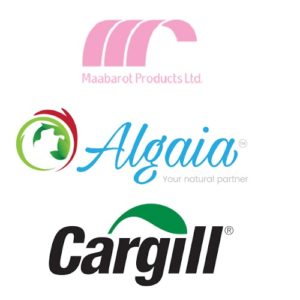 Oghma Partners’ outlook on Food Company Valuations and Merger and Acquisition activity in 2009
Oghma Partners’ outlook on Food Company Valuations and Merger and Acquisition activity in 2009
In the article below, Mark Lynch a founding partner of Food Co. M&A specialists Oghma Partners, reviews the outlook for merger and acquisition activity in the food sector in 2009. He also assesses the outlook for food company valuations.
Sentiment Stymies Action
2008 has seen an across the board reduction in M&A activity in the order of two thirds the level of 2007. This decline in deals has been caused by, amongst other things; valuation uncertainty prompted by volatile equity markets; a sharp reduction in the availability of finance as crisis hit banks held back on lending and a withdrawal of activity by private equity players.
It would appear that these same factors are likely to exist well into 2009. Furthermore, as the UK economy slows and levels of general business confidence deteriorate further, uncertainty looks likely to increase which may perhaps result in corporate inaction. However, alternatively, under such circumstances the deteriorating outlook may well encourage an increase in corporate activity.
Refinancing Challenge
In the opinion of Oghma Partners, the challenging UK economic environment is likely to increase rather than reduce pressure to undertake deals. With no recovery in sight, owners of highly indebted companies may opt to exit the industry rather than face the challenge of refinancing, frequently at significantly higher rates. Several of the more indebted companies in the food industry are owned by Private Equity houses. Investor tolerance of losses, within these vehicles, may be less than in privately owned businesses thus speeding any steps to action from this segment of the industry. Unfortunately, some of the highly indebted companies may simply go into administration, no longer able to service their debt burden, leading to a potential recycling of assets within the food sector.
Cost Reduction Challenge
A consequence of tougher trading is to force companies to re-examine their strategic
options. An inevitable conclusion of such reviews will be to reduce costs. But beyond readily available internal measures to improve competitiveness, the combination with third party businesses can provide additional opportunities to reduceoverheads. Furthermore, as the view gathers pace that trading conditions will remain very tough for the long term, we believe management’s willingness to look at business combinations will increase. Perhaps deals previously dismissed may well be taken back to the table for renegotiation.
Valuation Challenge
Another key factor which could increase M&A activity levels is likely to be valuation. Simply put, as valuations fall further, more deals may get done. A series of factors is likely to continue to bring downward pressure on valuations. From a purely “mechanical” perspective, falling equity markets and thus company valuations directly and indirectly reduces likely deal valuations. Obviously falling share prices mean measures of comparative valuation such as price to earnings or price to EBIT or EBITDA arelower. A second “mechanical” factor hitting valuation is the greater perception of risk and the increase in the “real” cost of funding. These two issues can have a direct impact on valuation given an ensuing increase in the discount rate applied when calculating a discounted cashflow model.
Market Challenge
Another factor impacting the food industry is a reversal, or at least slowing of previous market trends, such as growth in healthy eating or organic products. Amongst the most highly rated deals of recent years have been companies in the healthy eating and/or organic categories. As the growth rate of these businesses decline, so in tandem is likely to be the price that acquirers are willing to pay for this slower growth.
Industry Consolidation – different buyers
There is already a marked reduction in the ability of private equity firms to leverage individual deals, historically a factor driving private equity acquisition activity and returns. We may therefore continue to see a change in the origin of buyers, as noted over the last twelve months; fewer deals involving private equity and more deals involving existing operators within the industry. A weakened currency may also encourage greater foreign interest in the UK food industry. Deals based purely on leverage are being replaced by deals justified by the ability to access cost savings and gain operationa synergies. While some may be deemed defensive, many will seek to establish stronger market positioning and increased competitiveness over the long term. In addition, with finance tight, it is possible that nil-premium mergers will re-emerge as a route to deliver cost savings and perhaps improved balance sheet strength. Investors in highly leveraged companies may welcome the o! pportunity to escape the debt trap and avoid the prospect of having t sell at a depressed price.
Enhancing Valuation Prospects
For the business seller however, it doesn’t have to be all gloom. Tools available to the seller to boost exit prices include vendor loans and earn-outs. Vendor loans can help overcome the lack of, and perhaps cost of, debt. Earn-outs allow sellers to benefit from their faith in their businesses’ outlook and, by reducing buyers’ risk, may encourage buyers to pay more for companies than would otherwise be the case.
Fortune Favours the Brave
So, is 2009 going to be a bleak winter for the food industry in terms of structural change and the buying and selling of businesse? We at Oghma Partners clearly think not. The industry remains relatively fragmented which historically has encouraged a degree of consolidation. There has always been a high level of product and management innovation. While the acquirers may change and the tools used by them may differ, management teams are likely to be more open to approaches. Fortune, we think, will favour the brave in this challenging environment.









Oghma Partners Advises Icelandic Group on Sale of Seachill to Hilton Food Group
Oghma Partners LLP (“Oghma Partners”) is pleased to announce its role as financial adviser to Icelandic Group on the sale for cash of its UK-based subsidiary Icelandic Group UK (“Seachill”), to Hilton Food Group plc (“Hilton”), a leading specialist international meat packing business, for an Enterprise Value of GBP 84 million. The Seachill sale process, announced by the Board of Icelandic Group in April 2017, received significant interest from multiple parties on a global basis. The transaction is due to complete on or around 7 November 2017.
Seachill will become a standalone division of Hilton following completion, with the existing Seachill management team remaining in place. Simon Smith, the current Seachill Chief Executive Officer, will continue to lead the business as a divisional head of Hilton.
Seachill is a major supplier of chilled and frozen natural whitefish and salmon and added value products within the coated and ready-to-eat fish sectors. Seachill is also the owner of The Saucy Fish Co. which has gained recognition and success both domestically and internationally as a modern, consumer- focused brand.
Hilton is a leading specialist international meat packing business, supplying major international retailers from its state-of-the-art facilities. Hilton’s business was established in 1994 to set up and operate a beef and lamb central meat packing facility in Huntingdon, UK. Hilton has grown rapidly and now has six factories across Europe plus two joint ventures which allow the Group’s products to be sold in supermarkets across 14 European countries. Hilton is a publicly traded company listed on the London Stock Exchange.
To view the full press release click here.